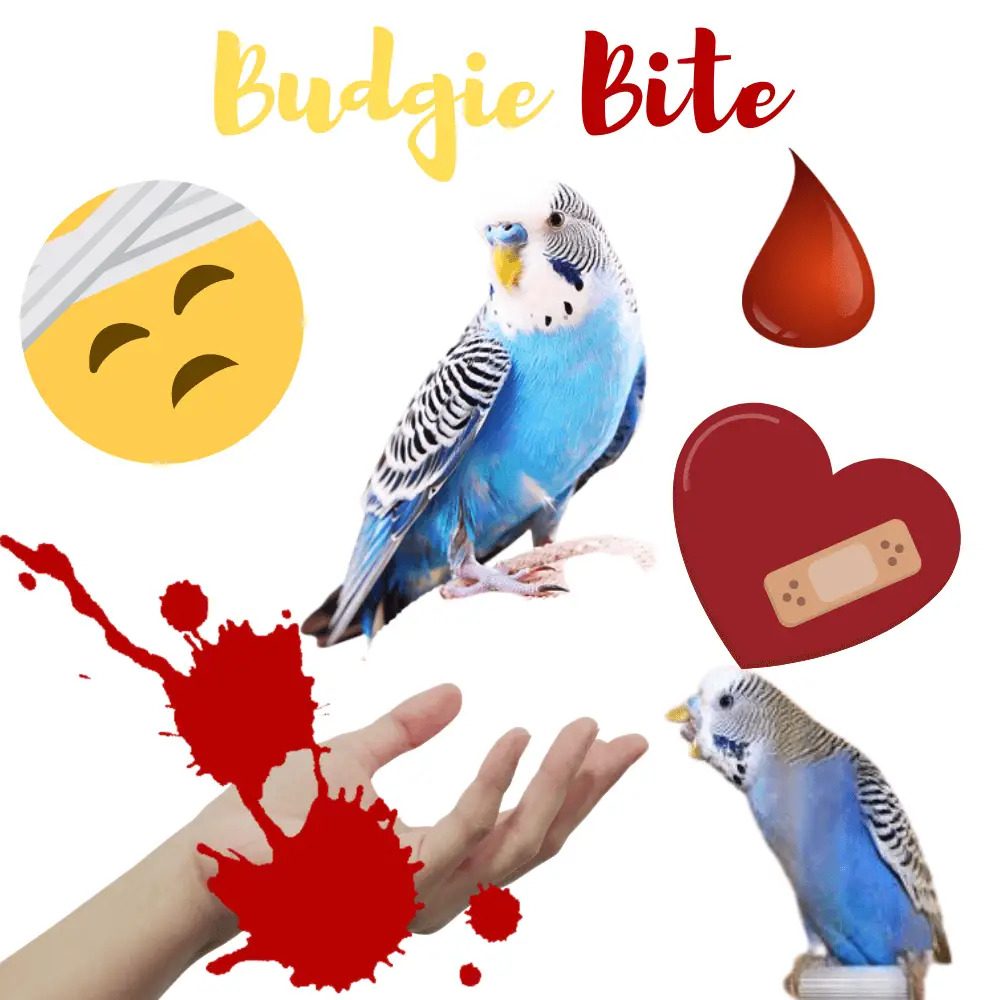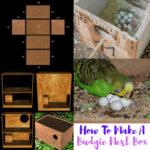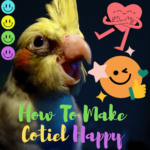
Budgie bite: Wavy parakeets (also called simply budgies) are sociable and friendly pets. However, some homeowners sometimes have to deal with problematic behaviors, such as a tendency to bite. They can do so for several reasons. If your budgie bites too, take the time to examine its behavior and then define the best strategy to correct it.
Assessing behavior
All you need to know about accessing behavior
Keep a journal that traces the circumstances in which she bites
This is the first thing to do to understand the situation. The reasons why these birds bite are many, and the method of solving the problem depends on the initial causes.
- Note every time she bites you. Write down the circumstances in which this happened. Are you manipulating it right now? Was she inside or outside her cage? Is the bite in response to food or treat? The more you can write down how things happened, the better it will be.
- Look for similarities in different bite episodes. More specifically, see if she tends to bite when she hears loud noises from outside or when she is manipulated by a stranger. If this is the case, know that it is anxiety that is causing it. But if it’s the night she’s biting after a long time out of her cage, she may be tired and might want to return to her cage.[2] .
Ignore her when she bites
Set a regular schedule of sleep and meal times
Since one of the causes of bites can be dissatisfaction with diet or sleep cycle, it can be helpful to stick to a schedule. In other words, feed her according to a certain routine while diversifying her diet and also let her sleep at about the same hours every day.
- Seeds and food in the form of pellets, which you can find in pet stores, should be the main ingredient in his diet. However, these birds can get bored eating the same thing every day. For this reason, be sure to change the usual diet by supplementing it with sprouted seeds, cereals, and vegetables.
- Keep track of the time when she seems to be resting. Make an effort to give it space during these moments. Your bird may feel frustrated and bite if you handle it when it is tired. Respect the fact that he needs rest to stay healthy and happy.
Handle it carefully
Anxiety is one of the main causes that cause these birds to bite and usually, it is unconsciously caused by owners who do not handle them in the right way. In fact, you must proceed with caution when you decide to handle it so as not to stress it.
- Let it approach you. Do not grasp it yourself, but give it the opportunity to climb on your hand or finger.
- Do not follow her from room to room, she could interpret it as a hunt. In nature, predators hunt them in this way. You must not let her see you as a threat. Therefore, allow him to fly freely alone in the different rooms of the house.
- Talk softly and give him snacks and toys. This should keep her calm and relaxed while allowing her to bond with you. If you just bought it, give it space for a few weeks before handling it.
Give him enough toys
In nature, these birds are constantly occupied with one task or another. Mental stimulation with appropriate toys is essential to the well-being of the budgie. If she is bored, she may end up biting for attention and stimulation.
- Items that can be shredded, such as toilet paper rolls or paper, can serve as great toys for the budgie. Since in the wild she gets these kinds of materials to build her nest, in captivity she will love to tear up the paper.
- Go to a pet store and look at the toys available for birds. Many budgies like objects in which food is hidden and which they have to open to get a reward. This is a good option if you have to be away from home for long periods of the day.
- Play with her. These birds need direct attention. Spend time with her, especially if you only have one. If you don’t think you have a lot of time to devote to him every day, you should consider taking another budgie to keep him company.
Let the bird get used to the changes
Avoid reinforcing behavior
All you need to know about avoiding reinforcing behavior
Don’t yell at him
Avoid punishing her
You would only aggravate his state of anxiety and stress. This will have the effect of eroding the bond you have developed with her. If you want her to stop biting you, you must not punish her.
- Never spray her with something to teach her how to behave, otherwise she will see you as a threat.
- Do not put it in the cage as punishment. These birds consider the cage a safe place where they can be happy. If you confine her to her cage because she bit you, she will think she behaved well and received a reward.
Don’t use treats or toys to distract her
Advice
- These birds usually show signs of nervousness. They may distance themselves, dilate their pupils or inflate their feathers. Many homeowners ignore these signals and are therefore bitten. So observe the body language of the budgie.
- These birds can bite small children, visitors or strangers, out of simple curiosity. Before allowing another person to touch it, be sure to present it to the bird so that it gets used to the new person and knows it is safe.
- If you see her for the first time, it is more likely that she will bite you, because under these conditions, she will consider you a stranger.
How to Stop a Budgie from Biting?
SOURCE:Alen AxP




















